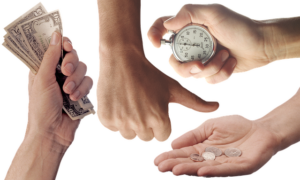When you are a first-time homebuyer, it often feels like every next step of the process is harder than the last one. First, you have to scale the hurdle of saving enough money for the down payment on the home. Then you must get approved for the loan. Finally, you have to find the right home and make sure it is worth every bit of the money you’ve paid.
For most first-time homebuyers, the second step – getting a home loan – is the hardest. Unlike when saving money for the down payment, would-be homeowners really don’t have any control over what lenders do. But this is mostly because they have no idea what lenders look at to approve or reject a mortgage application.
If you don’t know what you should do to pass a test, it is only natural that you will be more likely to fail it. This is why the biggest obstacle to most Canadians’ dream of becoming homeowners is their failure to meet lenders’ loan requirements, explains Leenan Properties. But, in fact, there is no mystery to what you need to do to get approval when applying for a mortgage loan.
The main things you should know as a first-time homebuyer are explained in this short guide.

Homebuyer Proof of down payment
No lender is going to loan you 100% of the money you need to buy your home. They expect you to share the risk of the investment by having some “skin in the game.” This means a portion of the money must come from you.
This money cannot be borrowed. It must be legitimately earned (with proof) or given to you as a gift. The usual down payment required by lenders is 20% of the purchase price of the home. But it is also possible to pay as little as 5% if you use some of the avenues that will be explained later.
Know what you can afford
Before you talk to lenders about lending you money, you should assess your own finances. What is the maximum amount you can afford to spend on a home? This cannot be determined just by simply looking at the down payment amount you have saved. You must consider the monthly costs of owning the home. Based on your current monthly income and expenses, will you have enough money left to accommodate mortgage payments and the maintenance costs of the home?
Sustainable income
Lenders want to know that you have sufficient and reliable income to make the monthly payments on the mortgage and enough left over to meet your daily needs. This information is obtained by looking at your income.
You will be required to submit a recent letter of employment from your employer, pay stubs to prove income, and T1 tax forms. For self-employed applicants or business owners, they will be asked to provide proof of business registration, income statements for the business, and notice of assessment.
How much you owe 
One thing lenders look at to assess your financial resilience is how much money you owe. The financial institution will check to see the proportion of your gross monthly income that is spent on paying off loans. The more money you owe in credit card payments, car payments, student loans, spousal/child support, and other loans, the more difficult it will be to get approved. Ideally, no more than 40% of your income should go into servicing debts.
Your credit score
The credit score is an assessment of your overall trustworthiness and astuteness in handling financial matters. To get approval for a loan, lenders want a credit history without delinquencies, as well as, a high credit score. Credit scores range from 300 to 900 and to get a mortgage approval, you should have a minimum score of 640. Although lenders may consider a score of 620, it will only get you tougher loan terms. A credit score of 680- 750 guarantees the most favorable terms.

Proof of substantial savings
In addition to the down payment, there are other costs involved in getting a home loan. For instance, the closing cost on the mortgage may be as much as 3-5% of the purchase price of the home and you will be expected to pay this amount out of pocket. Other costs are CMHC insurance and land transfer tax. If a lender does not see proof that you have money set aside to cover these additional costs, your loan will not be approved.
Take advantage of the first-time homebuyer incentive
The First-Time Homebuyer Incentive is a program of the Canadian government to ease the burden of homeownership for qualified first-time homebuyers. It offers rebates on tax credits and land transfer tax. Using this program, it is possible to borrow up to $35,000 from your registered retirement savings plan (RRSP), to make the down payment on the home. The program also has a plan that gives qualified buyers a way to reduce their down-payment by sharing their equity in the home with the government.
Contact me today if you are a first-time homebuyer or have been through the process before and need assistance.


